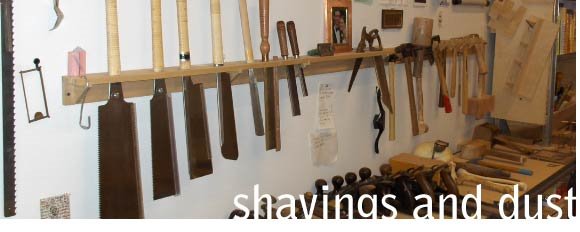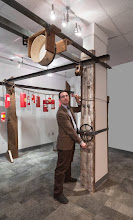the least pleasant part of being a teacher is the ritual of grading. I have always made jokes about colleges that don't give grades, but as an educator there is some merit to the philosophy. The students here seem to be really fixated on grades, some of them so much so that when and "unfair" grade is assigned, it can prompt angry emails, heated discussions, even tear-filled office visits.
This led me to do a little reading about grade inflation, and about what people think about it. One of the colleagues that I am teaching with this semester said that he has even noticed it in himself over the past five years, that at some point a "C+" became a "B-."
I absolutely understand this trend. Never having taught a class in which grades could be evaluated by raw data, I can't speak to the process for grading, say a 100 level math test, or a "names and dates" type history test (though I do not know if such things still exist). All of my teaching is done in a studio setting, and involves in-depth, exploratory conversation with each student. While I love this process, a side effect is that I tend to get emotionally entangled in each student's journey, which makes me more compassionate toward them than perhaps I should be.
One conversation that comes out of this line of observation is the one about "process over product." Is it more important that the students learn to apply a critical, thoughtful design process to each design challenge, or is it more important that the end product look good? Depending upon which side of the bed I get up, my answer to this changes. And this is not what I am writing about this morning.
This morning I am more interested in evaluation in general. A grade is an evaluation on a really comforting level. We understand where "B" stands next to "A" after all. We understand that "Average" is perceived as "Bad" while "Above Average" is perceived to be "Average." This all makes sense. But these are all external judgments, and though they may apply within certain constructs, they are all pretty arbitrary constructs. I was reminded recently of how I felt about "success" as a set designer when I first moved to New York, that the yardstick went from "anonymity" at the bottom end to rave reviews in the Times and the Voice at the top.
It is a construct for evaluation that is as valid as any other, I suppose, but it was so freeing when I decided that it no longer applied to me, that I would rather be evaluated based on whether a line that I spliced held, or, when I got to graduate school, whether a chair held the person sitting in it in a comfortable way. In some ways it is a shift to a system of evaluation in which complete anonymity is at the top of the yardstick: If the user does not notice that they are successfully using the object, if it functions so perfectly that there are no issues at all, then it is at its most successful.
Of course, it is a little disingenuous for me to imply that I don't have an interest in being published or recognised publicly (I only just now notices that "published" and "public" share a root. I will have to look in to that later). And there are external evaluation processes that matter to me a great deal: Karen's approval being one, my student's successes being another. But I think I am shifting as I get older toward processes of evaluation that value experiential success over opinions of observers, for the most part.
I have been talking to a couple of the students here about how little their grades will matter when they get out and are working. A client is not going to ask what grade they made in Sophomore Design. Or choose another designer because that grade was a “B.”
The other side of that, of course, is that as we have no other commonly accepted evaluation criteria, a great many other decisions are being made based on a student’s grade. The most important of these is financial aid: In a time and at a university in which the price tag for an education at the collegiate level is sneaking towards $200 000, financial aid is a necessity not just for students from working-class backgrounds. Even the very privileged students that we tend to have here often rely on some kind of financial aid, which is often heavily dependant on GPA.
Which comes back to being emotionally tied up in the process of our students. And to what an education is really for. As a Program, the Interior Design faculty got together and re-wrote our mission statement. We talked a lot about what kind of graduates we wanted to produce. Not once did the subject of GPA come up, not once did we even think of using that rubric as a useful yardstick. We came to the conclusion as a collective that we want to produce “curious and critical thinkers.”
I love the process of inquiry. Most of what I do as I stand at a student’s drawing table is ask them “why?” They are beginning to notice that, too, and some of them are asking it themselves, which makes me very proud. I feel like the most important thing that I can teach them is to look in the face of all of the dogma that bombards them (religious, retail, political, social) and to question question question to make sure that they think it is valid. That is the real success as far as I am concerned. And in the end, that is what I want to evaluate.
But it is not something that one can do once and then be finished and get a grade. This inquiry HAS to be an on-going process. When we stop asking questions we stop thinking for ourselves. And this is what I am confronting in my students: That they do a great deal of work until the deadline, but then they want to stop and move on, to put the project in their portfolio and never look at it again.
So this morning I have been thinking about how to evaluate them in such a way that they continue to question. What system can I use as an educator that encourages a continued critical inquiry while simultaneously providing a useful and compassionate comment on a student’s progress?
I am still working on this. I have a feeling I will be for some time to come.


4 comments:
This may sound like too simplistic of an answer to your question, but I actually think it could be a really interesting exercise for the students to-in May-go back through all they made during their sophomore year, and evaluate themselves on their progress, mental and technical. Then, even better, for them to do the same thing in their senior year- to write an evaluation of their learning process and progression. To evaluate if their early ideas were naiive, or containing a curiosity they feel they've lost, or whatever else they pick up on. I know it's always interesting for me to look back on the years of photographs I've taken, and see that some of them were very much a part of the "journey" I see many many photographers make, while others are incredible pure and beautiful for their enviable simplicity.
I agree with Ellie. In Ed. Theater, all of the discussion on evaluation was in terms of portfolio. It really allows for each individual student's progress to be taken into account. If student A has gone a long way in their own journey, and student B hasn't, even if Student B is still "better" in terms of skill than A, they haven't applied themselves. Part of evaluation should include students' potential as well. If I took one of your classes, my goal would be more of, "Please don't let this collapse when someone sits on it" as opposed to, "Make a perfect dovetail."
Part of our grade in my program, in almost every class, was writing a list of three specific goals, and at the end of the semester, going back and writing about each one, having to prove we accomplished it, or the reasons we didn't or what we learned instead (if we took a different direction). This sort of sets a standard for the student, and allows the professor to understand their level. The professor in turn gave feedback, saying that you either needed to further prove you accomplished what you set out to do (rewrite your own assessment), or even say that you actually did better than maybe you think you did. The three questions would put a portfolio much more into context, even though it's a relatively simple exercise. In addition, when the goals are submitted feedback can be given, such as, "You know, I really think that this goal is relatively easy for the level of the class, so I'd like you to rewrite it and consider x-y-z," or, "This seems pretty lofty, and I'm all for challenging yourself, but you need to focus on blah blah beforehand, which we'll definitely be addressing in this class."
As a foreigner, I have never understood the US system whereby a student can (and expects) to get 100% or a 4 GPA. In the UK (though I suspect this is changing) it is common for an essay to be marked a pass at 50% and the student to be grateful for it. Take for example undergrad degree scores, a first class degree is usually a top 5% of the class and they score over 70%. 2:1 you need to get over 60%, 2:2 (median group) over 50%, a third class degree over 40%, pass without honors below that etc. to get that 1st class degree you really have to work hard (I got a 2:1 *grin*).
Now it is easier to evaluate the sciences as there is usually a right and wrong answer and right way of getting there. I have also studied more ephemeral things such as law where you write an essay and agree with both sides. With these courses it was imperative that there was a clearly defined marking scheme that was handed out at the start of the course. I don't have a copy but it was at least a full page long and painstakingly detailed what the student must show to get each grade band. Knowledge of the subject, further reading original thought etc etc... There was no room for complaining.
As a teacher, I often find myself in the same position as you, able to see the progress but wanting to be honest with the kid and their family about how far they may lag behind. As a student, I pray for good grades to keep the financial aid flowing. I find it interesting how inflexible colleges are about grades. My high school had teacher comments instead of grades, and the place I currently work also comments. It is much more useful than a number!
Post a Comment